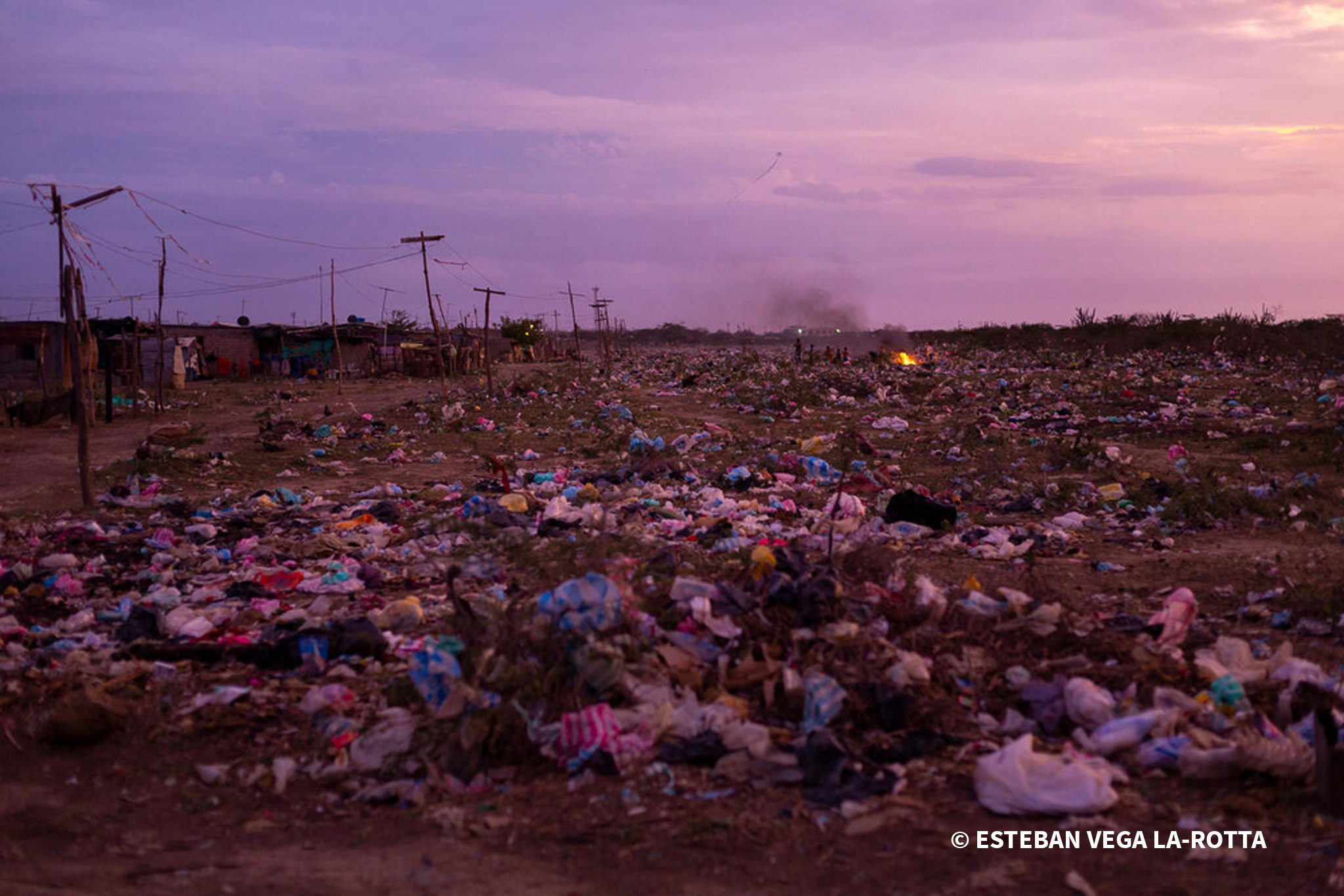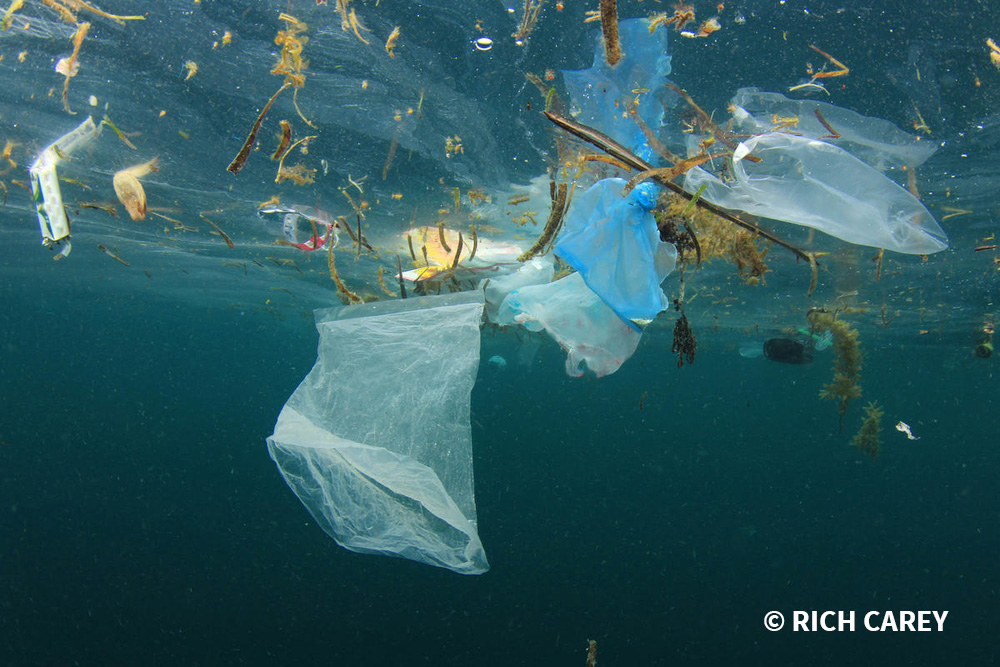Why Plastic? Africa’s Contribution to the Global Plastic Policymaking Processes

As a Charles R Wall Young African Policy Fellow and a Marine Biologist, I am deeply committed to addressing plastic pollution. The upcoming third session of the Intergovernmental Negotiating Committee (INC-3) is not just an event on the calendar but a pivotal moment in the ongoing fight against plastic pollution, especially in the marine space, which is often overlooked. Having actively participated in preceding processes and regional consultations, I am enthusiastic about contributing to the global dialogue aimed at crafting an international legally binding instrument to address this critical issue.
The urgency of the matter is palpable across the continent, from the bustling urban centers to the serene rural towns and from the winding rivers to the expansive coastlines. The escalating tide of discarded plastic packaging and waste is an undeniable sight that demands our attention. While Africa may not be the epicenter of plastic pollution, the looming threat is genuine, and addressing it is not just a necessity but an obligation.
In August this year, my negotiation journey led me to the African Ministerial Conference on the Environment (AMCEN), where I transitioned from an observer to an active participant. Engaging in high-level expert and ministerial sessions, I was at the epicenter of discussions shaping Africa's stance on plastic pollution and its mitigation. It was not just the formal sessions that left an impact, but also the interactions with diverse country delegations. The personal stories, shared challenges, and collective determination painted a vivid picture of our continent's uphill battle, going beyond policies and statistics to reveal the real impact on communities, environments, and livelihoods.
Plastic pollution, a borderless challenge, has infiltrated even the most remote corners of our planet. The urgent need to address plastic pollution, particularly in marine environments, is paramount in Africa. The global community's efforts to create an international legally binding instrument on plastic pollution make Africa's active engagement both a necessity and an obligation. This moment offers Africa the chance to advocate for its unique challenges and aspirations on the global stage while driving transformative change at home.
A Sea of Challenges: The State of Plastic Pollution in Africa
While Africa is not currently a regional epicenter of plastic pollution, the trajectory could change if we continue with "business as usual." With a population of 1.3 billion in 2018, accounting for 16% of the world's population, Africa's plastic footprint is emerging.
In 2015, the continent produced 5% of the world's plastic and consumed 4% of its plastic products. Global plastic production surpassed 400 million tonnes in 2020, with notable contributors being China, North America, and Western Europe. Intriguingly, these regions also lead in plastic consumption. A stark disparity lies in Africa, where plastic consumption stood at 16 kg per person in 2015, a far cry from the global average of 45 kg per person and the staggering 136 kg per person in Western Europe.
A global study by the UN Environment Programme (UNEP) in 2015 identified mismanaged solid waste and tire abrasion as major contributors to land-based macro and microplastic pollution. In the maritime domain, plastic pollution originated from ghost fishing gear,
discarded aquaculture equipment, and litter from seafaring vessels. Addressing this labyrinthine challenge requires comprehensive multi-stakeholder efforts and synchronized actions, with urgent intervention needed to bridge gaps in existing policy and legal frameworks from the global to the local level.
From Problem to Solution: Navigating Initiatives and Hurdles
In the face of this crisis, African countries are taking action. Significant initiatives and policies have emerged as beacons of hope. Countries like Kenya, Rwanda, and South Africa have shown that determined efforts can produce tangible results. From plastic bag bans to community-driven clean-up campaigns, these initiatives offer valuable lessons that can be scaled up and replicated across the continent.
According to recent deliberations, over 45 African Environment Ministers expressed their collective intention to champion a global instrument that tackles the most harmful and high-risk plastic categories, including problematic polymers and chemicals of concern. With Africa generating more than 4 million tons of plastic waste annually, AMCEN's policy messages echo the urgency of action.
Participation in international forums offers African countries a vital platform to advocate for their distinct perspectives on plastic pollution. By voicing their challenges and aspirations, African nations can influence global policies that resonate with their realities. This requires collaborative preparation, strategic alliances, and a commitment to presenting a united front. Through effective diplomacy and cooperation, Africa can ensure its voice is heard and heeded in shaping the international response to plastic pollution.

A Personal Commitment: From Hope to Action
As we move forward, the path to combating plastic pollution isn't just about policies and regulations; it's about harnessing the power of personal experience and expertise. It's about embracing the stories that drive us, the realities that ground us, and the commitment that fuels us.
In conclusion, Africa's engagement in developing an international legally binding instrument on plastic pollution holds immense promise. Africa's active role is indispensable, from the urgency of the crisis in its marine environments to the successes and challenges it faces. By fostering regional unity, advocating for tailored solutions, and leveraging international platforms, Africa can lead the charge in charting a sustainable path forward, not only for its shores but for the health of our planet as a whole.
As I follow the negotiations, my hopes for the outcome are rooted in a vision of a global framework that addresses the symptoms and targets the root causes of plastic pollution. Africa, in particular, faces distinctive challenges in managing plastic waste, and I am optimistic that the international instrument we are designing will factor in the African continent's specific needs and concerns, including equitable distribution of responsibilities, capacity-building support, and sustainable practices tailored to the socio-economic and environmental contexts of African nations.